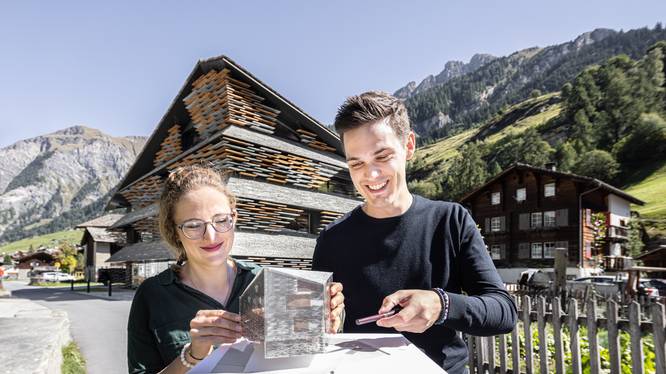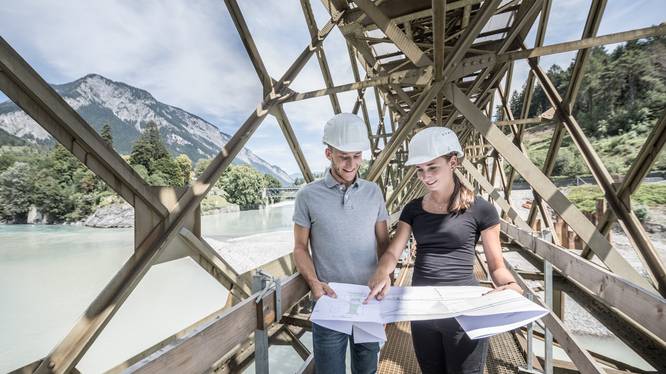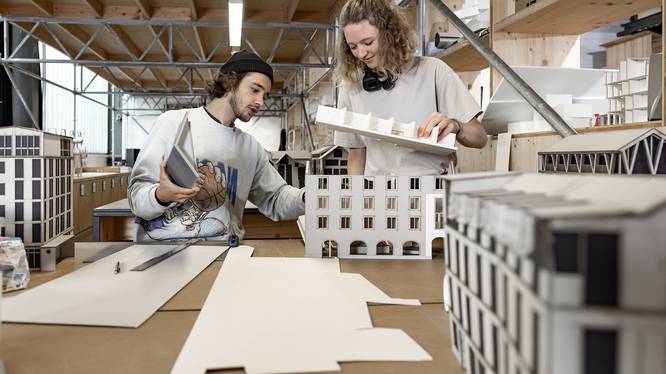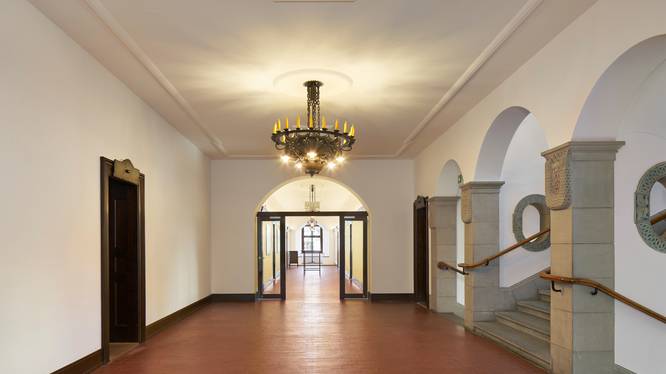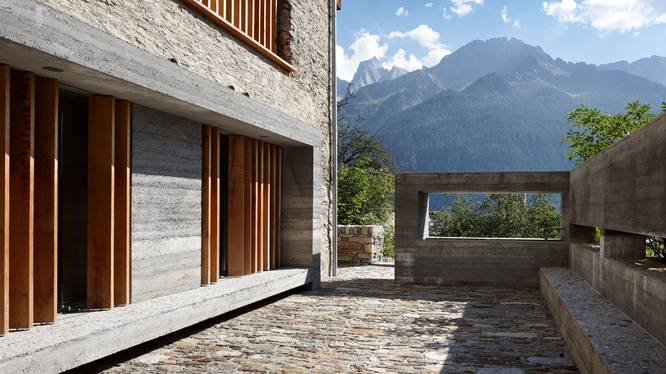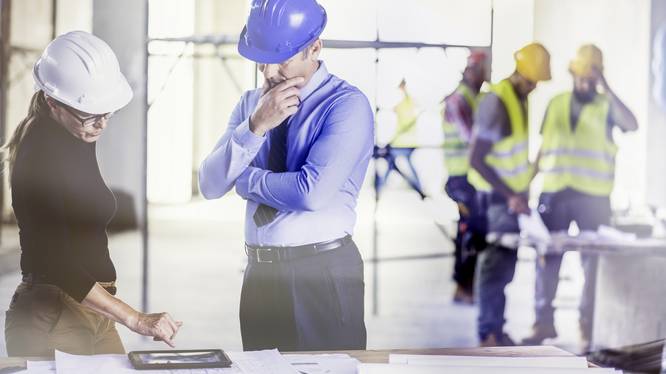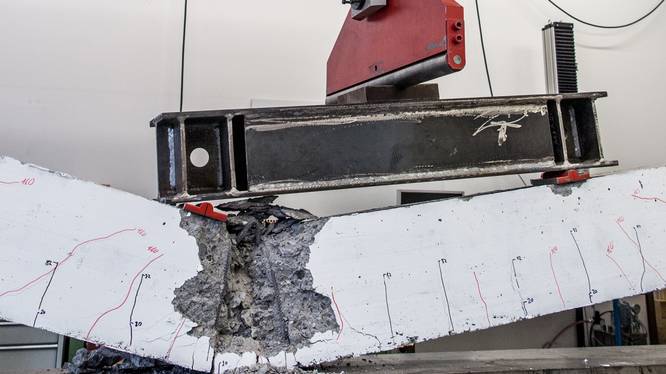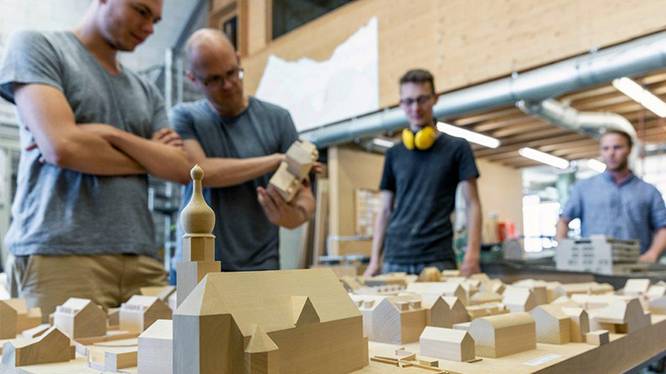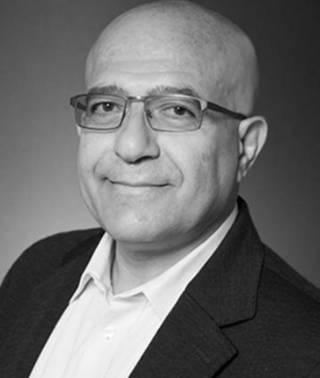Institute at a glance
In Alpine living environments, buildings and their surroundings are exposed to more extreme stresses than is the case elsewhere due to the prevailing climatic factors and natural hazards. The climatic and topographical conditions faced during the building phase are also more demanding and the distances involved are often large. Specific building materials such as wood can also be found locally as well as soil conditions that offer potential not yet fully exploited by the field of construction engineering, meaning further research is still required.
Here, we look at which buildings have become established in Alpine regions historically, which building solutions and systems are sustainable and prove successful when faced with the specific conditions of the Alps and which influences caused by natural hazards can be averted or controlled.
In addition, we deal with design issues relating to the long-term preservation of Alpine townscapes in order to make tourism in Alpine regions attractive over the long term. We analyse architectural trends and link these to Alpine townscapes – adopting a critical view with respect to their historical emergence and meaningful future development.
Head of institute/centre
Lifa Imad More about Lifa ImadResearch fields
Alpine Infrastructure Constructions
Settlement Planning and Townscape Development
Applied Glaciology More about the research fields
Expertise
Due to the location of University of Applied Sciences of the Grisons in the middle of the Alps and the specific issues with which a mountain canton such as Graubünden is confronted, the practice-oriented projects and objectives of the Institute for Construction in Alpine Regions focus on the regions from which it takes its name.
The specific research focus areas include, in particular, engineering and architectural issues such as the creation of infrastructure constructions and protective structures in mountain regions and the renovation of old building stock. A further important aspect is the search for sophisticated building solutions and settlement designs that take account of engineering requirements in mountain regions, the regional architecture and the special features of the Alpine landscape.
The IBAR specialises in application-oriented research and services and addresses the research focus area of Construction in Alpine Regions. This work covers the following research fields:
Degree programmes
The bachelor’s degree programmes in Architecture and Civil Engineering serve to provide basic training for a career as an architect or civil engineer. Examples of the topics covered during teaching include the environment and climate, decentralised settlement and regional planning as well as the preservation of infrastructure and touristic townscapes.
Further education
In the area of further education, we cooperate with other universities of applied sciences for the MAS in Sustainable Construction (EN Bau) within the framework of which we offer the CAS in Continued Construction on Existing Buildings. The CAS in Road Building Projects has become established since 2016. Further courses are offered as required.
Research and consulting
The team of the Institute for Construction in Alpine Regions (IBAR) comprises architects, civil engineers, geologists and environmental engineers. Our researchers develop and provide building solutions and construction materials with a clear focus on Alpine regions. As buildings in the Alps are exposed to more extreme stresses than is the case elsewhere (due to the climate and natural hazards), our team develops new construction methods and building solutions that take account of the demanding requirements of Alpine regions. Our researchers are especially in demand at both a regional and international level in the field of Settlement Planning and Townscape Development. They analyse space concepts and the historic development of villages and towns in the Alps with the objective of illustrating visions and overall concepts for their future development. In the area of Alpine infrastructure constructions, our researchers develop specific building solutions – for example aimed at stopping or preventing landslides or at optimising water catchments for hydropower stations.
Within the framework of its services, the institute draws up expert reports and feasibility studies for projects and project ideas in the areas of architecture and civil engineering. Such projects are often implemented as semester assignments as part of the respective study programmes. This means that the practical relevance of the projects is ensured and the principal receives several project versions.
Within the canton of Graubünden, the IBAR offers architectural tours for private individuals, Swiss and foreign universities as well as public institutions. In Chur, the architectural tours are held in cooperation with Chur Tourism.
Forms of cooperation
There are various forms of cooperation: research projects, consulting projects or student projects. Please contact us – we are happy to support you with your projects.
Labs
In our Model Workshop, we produce models in the areas of architecture, design and civil engineering. The work conducted in our professionally managed and modernly equipped Model Workshop forms an integral part of the university education provided as part of the bachelor degree programmes in Architecture and Civil Engineering.
In the Building Lab, material experiments are conducted as part of demonstrations for students. The laboratory is also available to the researchers from the Institute for Construction in Alpine Regions (IBAR), which also includes services for the regional economy and public-sector clients.
Team
Memberships
- Verband Gute Bauten Graubünden – the Graubünden association for high-quality buildings
- Graubünden branch of the Swiss Society of Engineers and Architects (SIA)
- German Association of Geotechnology (DGGT)
- Swiss Association of Geosynthetics (SVG)
- Swiss Association of Regional Planning (VLP)
Contact
University of Applied Sciences of the Grisons
Institut für Bauen im alpinen Raum (IBAR)
Pulvermühlestrasse 57
7004 Chur
Switzerland
Phone: +41 81 286 24 83
Mail: ibar@clutterfhgr.ch



